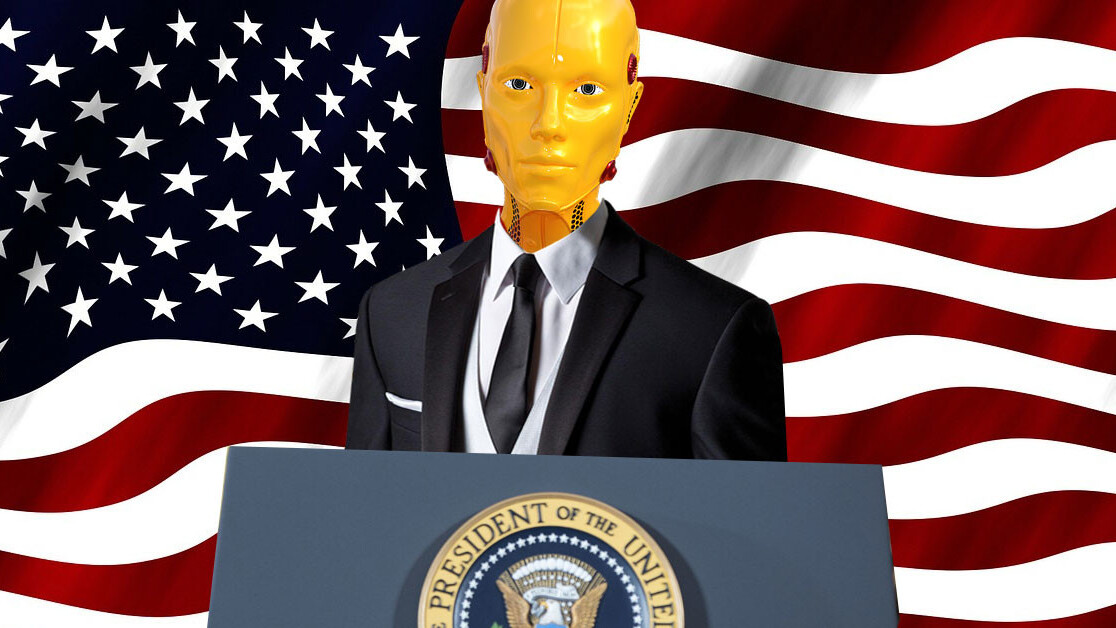
A pair of researchers, Ujué Agudo and Helena Matute of Universidad de Deusto in Spain, recently published a fascinating study demonstrating how easy it is to influence humans with algorithms.
Up front: The basic takeaway from the work is that people tend to do what the algorithm says. Whether they’re being influenced to vote for a specific candidate based on an algorithmic recommendation or being funneled toward the perfect date on an app, we’re dangerously easy to influence with basic psychology and rudimentary AI.
The big deal: We like to think we’re agents of order making informed decisions in a somewhat chaotic universe. But, as Neural’s Thomas Maucalay recently pointed out in our weekly newsletter, we’re unintentional cyborgs.
And that means we’re susceptible to the same disadvantages as our hairy ancestors as well as those that have traditionally only affected machines. If you prick us, we bleed. And if an algorithm tells us something is true, we usually agree.
An argument: We’re no longer homo-sapiens – which means “wise man” in Latin. We’re more like reverse-homomutatas. That might sound like it would have something to do with “mutant humans,” but in fact it refers to a type of cloud.
Homomutatas are cloud-like formations caused by human interference in the natural atmosphere that have transcended their initial state to become… something more. It takes a combination of humanity’s byproducts and nature’s influence to create homomutatas.
What humanity has become is the opposite. We once were the “wise man” of nature, now we’re fully-augmented cybernetic beings who’ve eschewed millions of years of natural evolution in exchange for the ability to externalize our cognitive functions. In other words: we let computers do the work our brains were evolved to handle so we can fill our time with more creative endeavors. Such as arguing over politics or deciding whether to swipe right or left.
The research: Agudo and Matute, the aforementioned researchers, probably weren’t trying to argue that humanity has evolved beyond the natural order when they conducted their study. But, after reading the research, it’s hard to come to any other conclusion.
Per the study:
In four experiments, we found that persuasion was possible and that different styles of persuasion (e.g., explicit, covert) were more effective depending on the decision context (e.g., political and dating). We conclude that it is important to educate people against trusting and following the advice of algorithms blindly.
The researchers conducted four distinct experiments under similar conditions. Each began with a fake personality test. Once participants completed the test they were given a personality profile which they were told would inform the algorithm and help determine the best personalized results for them.
In reality, there were no individual personality profiles. All participants were given the same fake profile, a vaguely worded one that could apply to anyone.
In the first experiment, the researchers used explicit manipulation to get participants to vote for a specific political candidate. People were shown images of fictional politicians and told that specific candidates matched their personality to a high percentage and then asked, based on nothing more than the images of the politicians and the algorithmic recommendations, who they were most likely to vote for.
When compared against a control group of people viewing images with no algorithmic manipulation, people were much more likely to vote for the candidate the AI told them to.
[Read: 3 new technologies ecommerce brands can use to connect better with customers]
The second experiment used indirect manipulation. Rather than telling participants an AI was recommending politicians, the algorithm secretly chose four politicians and pre-exposed participants to their images in order to develop familiarity.
Interestingly, people didn’t seem to be influenced in any statistically meaningful way when the algorithm tried to use what magicians call a “force,” that is, to hide the fact they’re pushing a mark towards a specific outcome.
In politics, it seems, people trust the algorithm to tell them what to do even more when they know they’re being manipulated.
But the results were a 180-degree departure when the same concepts and algorithms were applied to dating apps.
When the algorithm told people they would be a match for certain individuals, participants were still just as likely to say they’d rather date a different fictional match than the one the AI tried to force.
However, when the AI stayed behind the scenes and surfaced specific images, users were more likely to choose those images.
The bottom line: We’re easily manipulated by algorithms. The question isn’t whether a bad actor can manipulate us with AI, it’s which algorithms work best for a given situation.
What that means for humanity, in the post homo-sapiens sense, remains to be seen. We’ve only been living with modern AI techniques for a matter of decades. The bad actors of the world have an extreme advantage over the good-faith researchers, scientists, and politicians who want to study and regulate AI.
As the researchers put it:
It is important to note, however, that the speed with which human academic scientists can perform new experiments and collect new data is very slow, as compared to the easiness with which many AI companies and their algorithms are already conducting experiments with millions of human beings on a daily basis through the Internet.
AI companies can test as many hypotheses as they wish, and with samples as huge as they wish, until they find the most pervasive algorithms. Therefore, their ability to influence decisions both explicitly and covertly is certainly much higher than shown in the present research.
You can read the whole study here.
Get the TNW newsletter
Get the most important tech news in your inbox each week.




